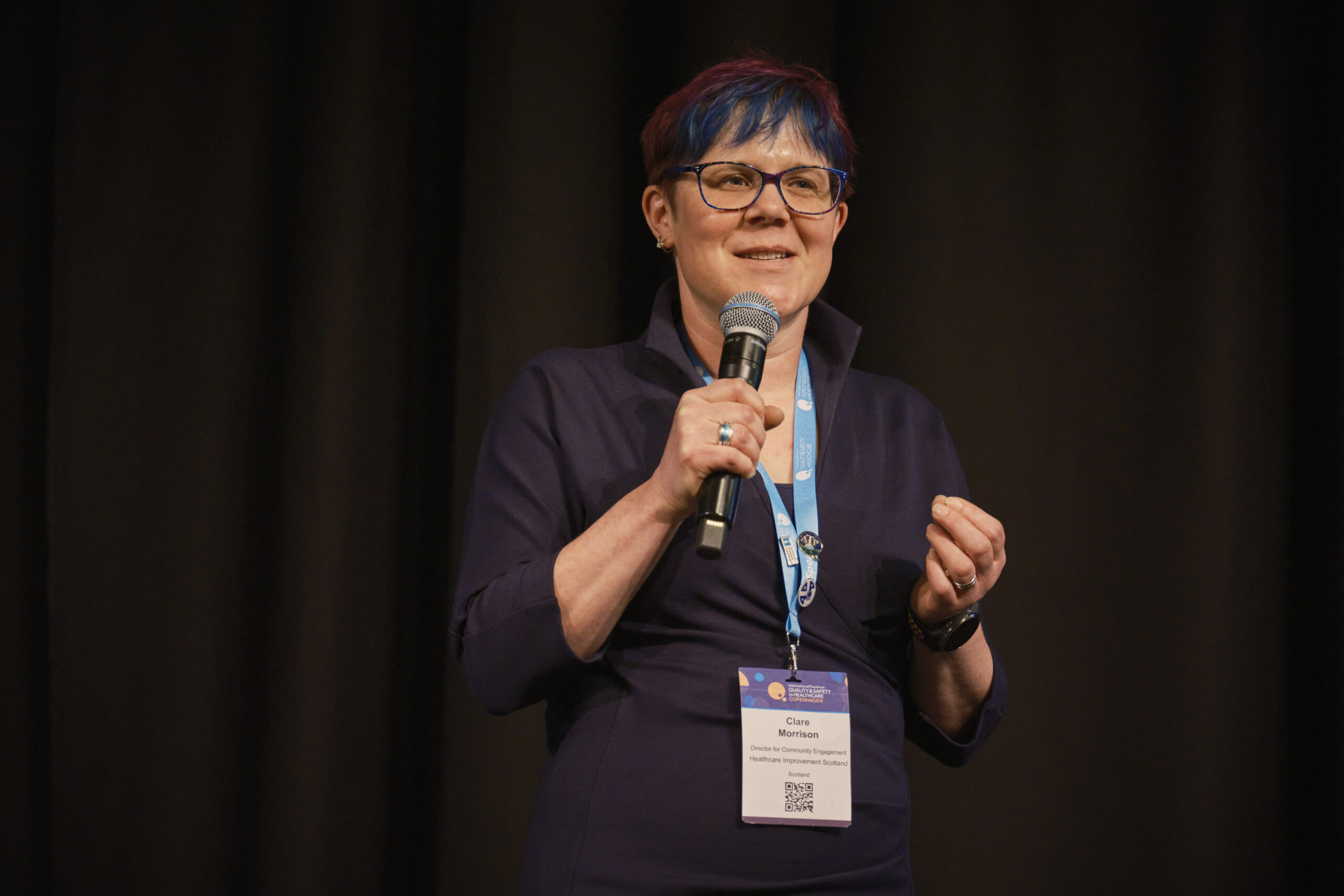Call for Speakers is now closed
What are we looking for?
Call for Speakers is an invitation to submit a proposal to showcase an innovative project or inspire a new way of thinking.
In 2024 we want to focus on what’s next in the world of improvement – where should our focus be, how are we addressing the new challenges to patient safety and delivering quality care that have emerged over the last few years.
We know that one of the answers is ‘together’. So, we are looking for brilliant, scalable examples of collaboration and co-production – between patients and professionals, by service users and service designers, across organisations and from around the world.
We also recognise that we can’t ignore the impact our work has on climate change, so we will be asking how are we improving our planet’s and future generations’ health and wellbeing as we improve health and care journeys today.
We have a strong preference for content that:
- Is co-designed and co-produced with or led by patients or service users
- Illustrates ways to facilitate interdependent approaches for achieving improvement within and across settings and systems
- Contains new, innovative, and fresh ideas that challenge established practices
- Can demonstrate impact sustainability and scalability through quantitative data over time and authentic narratives
Who should apply?
We welcome applications from across the healthcare sector and beyond, including non-clinicians, patients, service users and carers, voluntary and social care sector professionals and students.
The best submissions usually come from teams of different stakeholders working together – within or between organisations.
We also welcome first-time presenters.
We are actively seeking to increase the diversity of our attendees, speakers, and sponsors through our Call for Speakers and posters, other open submission processes, and through dialogue with the larger communities we serve.
Call for Speakers streams for London 2024
This year, we have 6 NEW streams you can submit to, each with expert co-chairs and reviewers. We want to hear about projects and initiatives that show impactful results under the following streams:
1. Safety
Co-chairs: Ian Lestikow and Aidan Fowler
Patient safety in healthcare involves the prevention of harm through the effective mitigation of risk – and incorporating aspects of safety science including human factors. Patient safety also involves learning by investigation, reporting and change after events. We want to hear about projects that reduce the possibility of harm caused by healthcare, but also submissions from those working in harm and risk reduction in other industries. From technological safety nets to organisational culture improvement, how are we keeping each other safe as we go about the day to day work of delivering healthcare, plan new services and work across professional boundaries. We’d be keen to see submissions from risk management teams and technology providers and also investigators looking to share good practice.
2. People
Co-chairs: Emma Doble and Bob Klaber
We want to hear about your improvement projects where health and care professionals are working together with patients, carers or people with lived experience to co-produce a real difference to communities. This includes patient leaders who are creating real improvements to the experience of patient care. We are also interested in healthcare professionals co-producing with patients, as well as co-production across social care and education sectors to improve health. If you are a patient, or working in partnership with patients, to create better healthcare we want to hear from you.
3. Population
Co-chairs: Vibeke Rischel and Dominique Allwood
In this new stream, we are recognising the imperative for healthcare improvement to change to meet the needs of the whole population. We’re interested in
- how we can use approaches such as large data sets to understand need and plan care for whole communities, how technology is bringing new challenges and opportunities for scaling care across populations
- the application of improvement approaches work that focuses on a specific population group, health outcomes and health inequalities
- improvement across boundaries and examples of collaborations across organisations and sectors (e.g. health, social care, education)
4. Change
Co-chairs: Helen Bevan and Göran Henriks
Change is the process by which we make improvement happen. The focus will be on how we think about change and practical actions that enable change, leading to improvement such as small-scale change initiatives, how can we make change happen across a whole system? How you have applied social movement thinking or complexity principles of appreciative inquiry or implementation science or any other approach to change in health and care. Submissions will be welcomed from people who are expert practitioners in specific forms of change who would like to share their practice.
5. Science
Co-chairs: Amar Shah and Pierre Barker
This stream will showcase the best work that is applying the science of improvement with high rigour, and advancing the field of improvement science. We’re particularly keen to hear from people applying good design and evaluation methods in health and care improvement. We’re looking to define the approaches and methods being applied within health and care to improve quality of care, improve population health, tackle equity and enhance sustainability. We’ll be working with the Editors of BMJ Quality and Safety and BMJ Open Quality to highlight the best work submitted.
6. Leadership
Co-chairs: James Mountford and Inge Kristensen
Leading for better health is becoming ever more complex and challenging, yet also ever more exciting since we have a constantly-growing base of experience on which to draw. “Leaders” can be health or care professionals, patients, community-leaders or others — we’re interested in all forms. What does “leading well” look like today in a complex world with multiple needs and aims? How can leaders encourage progress at one and the same time across all dimensions where results matter: patient outcomes and experience; population health and equity; sustainability/environmental health; cost; staff experience and wellbeing? Submissions should include creative solutions and strategies which are of practical use to people working toward better health – be they community organisers, ward team leaders or executives in large systems, charities or other organisations. And submissions which are grounded in practice and real-world application, not only in theory. This stream will be developed in partnership with BMJLeader, the journal for evidence and debate in leadership across health and care.
Patient representation and lived experience
Submissions are expected to be co-produced with patients, service users, citizens and carers wherever possible. We have representatives on these groups in all our planning committees, and are working to increase the representation of these groups as speakers and delegates.
Notifying you
You will be notified of the outcome of your submission by email in November 2023. Please note the email address that you supply in the Submitter Details page will be the email address used to correspond the results of your submission. If you change email addresses during this time, please let us know so we can update your records.




